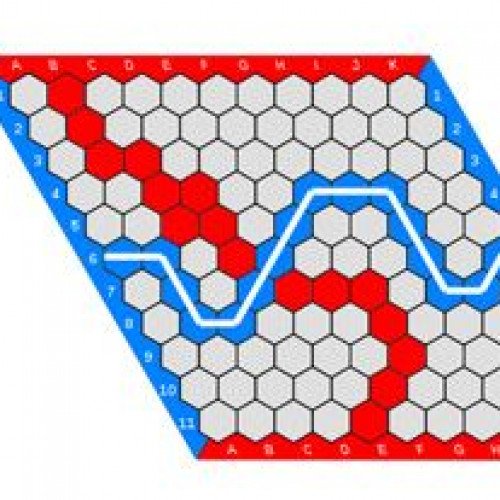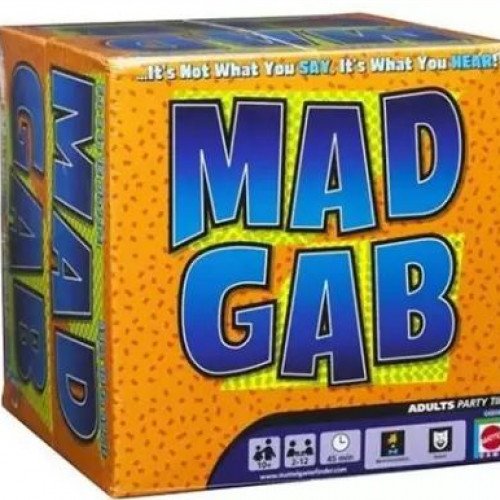HEX VS MAD GAB

HEX
Hex is a two player abstract strategy board game in which players attempt to connect opposite sides of a hexagonal board. Hex was invented by mathematician and poet Piet Hein in 1942 and independently by John Nash in 1948. It is traditionally played on an 11×11 rhombus board, although 13×13 and 19×19 boards are also popular. Each player is assigned a pair of opposite sides of the board which they must try to connect by taking turns placing a stone of their color onto any empty space. Once placed, the stones are unable to be moved or removed. A player wins when they successfully connect their sides together through a chain of adjacent stones. Draws are impossible in Hex due to the topology of the game board. The game has deep strategy, sharp tactics and a profound mathematical underpinning related to the Brouwer fixed-point theorem. The game was first marketed as a board game in Denmark under the name Con-tac-tix, and Parker Brothers marketed a version of it in 1952 called Hex; they are no longer in production. Hex can also be played with paper and pencil on hexagonally ruled graph paper. Hex-related research is current in the areas of topology, graph and matroid theory, combinatorics, game theory and artificial intelligence.
Statistics for this Xoptio

MAD GAB
Mad Gab is a game created by Terry White in which there are at least two teams and 2–12 players. Each team has two minutes to sound out three puzzles. The puzzles, also known as mondegreens, contain small words that, when put together, make a word or phrase. For example, "These If Hill Wore" when pronounced quickly sounds like "The Civil War". Another example would be "Eye Mull of Mush Sheen" quickly spoken it sounds like "I'm A Love Machine". There are two levels of difficulties: easy and hard. The faster the puzzles are answered, the more points the players score. This game uses phonetics, which is a branch of linguistics. This game is a test for the human brain to process sounds based on simpler English-written sounds into a meaningful word or phrase. The game is designed where a person would not be able to decode the meaning of the phrase unless spoken out loud and listened; reading the phrase silently will not allow the player to decode the meaning because sounds would have to be encoded into meaningful English words.